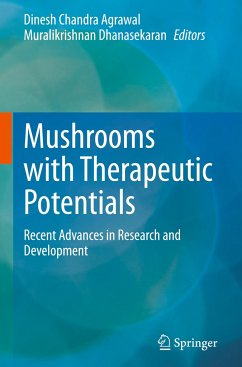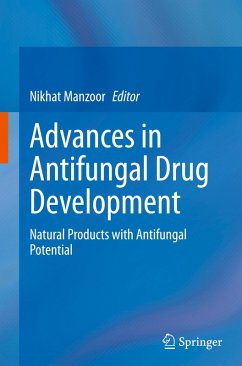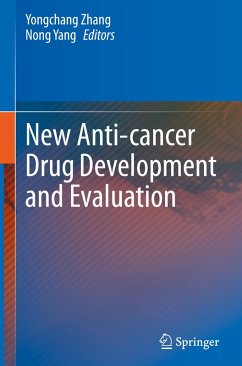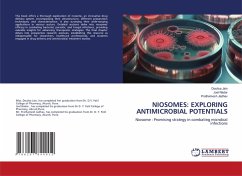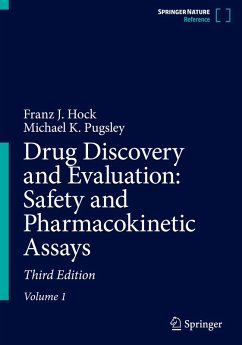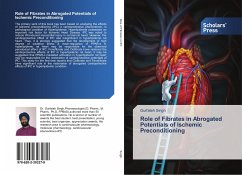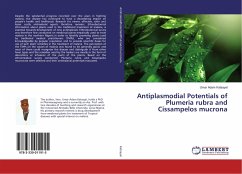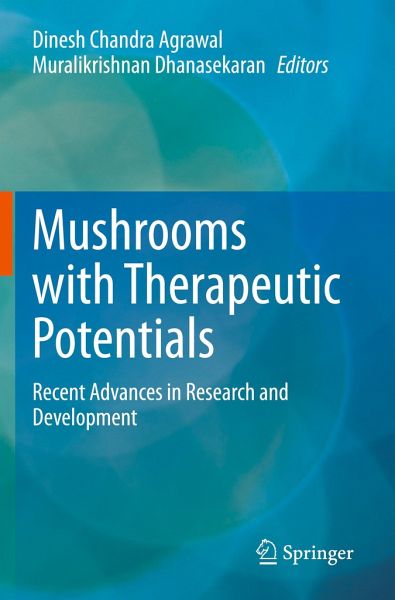
Mushrooms with Therapeutic Potentials
Recent Advances in Research and Development
Herausgegeben: Agrawal, Dinesh Chandra; Dhanasekaran, Muralikrishnan
Versandkostenfrei!
Versandfertig in 6-10 Tagen
106,99 €
inkl. MwSt.

PAYBACK Punkte
53 °P sammeln!
The book presents new and novel perceptions about ailments alleviating the effects of several mushroom species. Also, the book highlights the curative role of medicinal mushrooms on some peripheral and central diseases. Various chapters in the book (primarily reviews) have been dedicated to providing the therapeutic efficacy of mushrooms against respiratory illnesses, gut microbiota, COVID-19, dementia, epilepsy, mental ailments, cancers, cardiovascular, kidney-related diseases, and other common pathologies. Thus, medicinal mushrooms are current and future consumable healthcare products that u...
The book presents new and novel perceptions about ailments alleviating the effects of several mushroom species. Also, the book highlights the curative role of medicinal mushrooms on some peripheral and central diseases. Various chapters in the book (primarily reviews) have been dedicated to providing the therapeutic efficacy of mushrooms against respiratory illnesses, gut microbiota, COVID-19, dementia, epilepsy, mental ailments, cancers, cardiovascular, kidney-related diseases, and other common pathologies. Thus, medicinal mushrooms are current and future consumable healthcare products that usually exhibit nourishing properties and possess prophylactic and therapeutic values with minimal adverse effects and contraindications. The book focuses on Sustainable Development Goal (SDG 3) to promote healthy lives and well-being for all.
Medical, pharmacy, nursing, and CAM (complementary and alternative medicine) students, practitioners, scholars, researchers, other healthcare professionals, and general readers are this book's potential audience. The book can be adopted as a textbook for undergraduate and graduate courses so that the therapeutic potential of mushrooms can reach a wider audience. This book strives to create a new resource for the future use of medicinal mushrooms in various disorders.
Medical, pharmacy, nursing, and CAM (complementary and alternative medicine) students, practitioners, scholars, researchers, other healthcare professionals, and general readers are this book's potential audience. The book can be adopted as a textbook for undergraduate and graduate courses so that the therapeutic potential of mushrooms can reach a wider audience. This book strives to create a new resource for the future use of medicinal mushrooms in various disorders.



